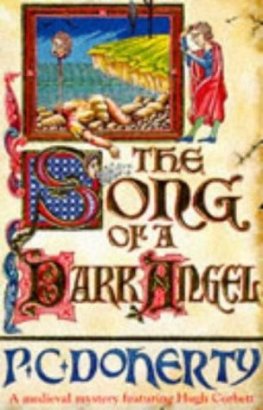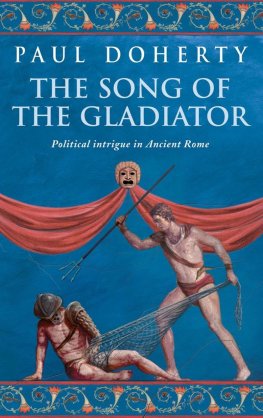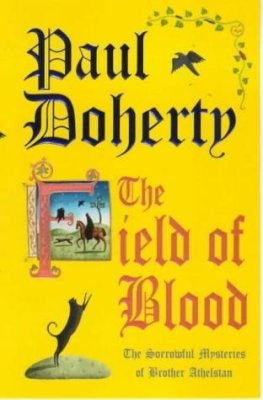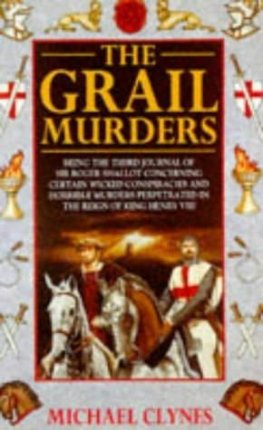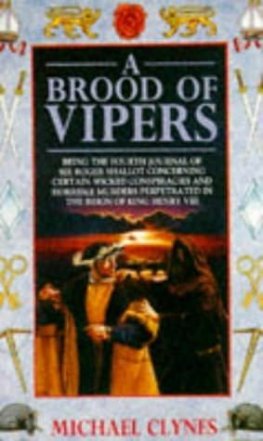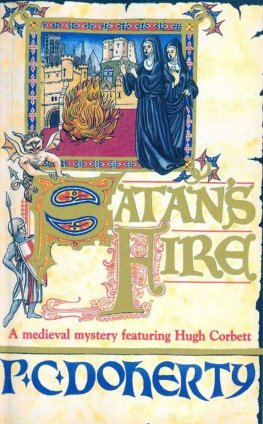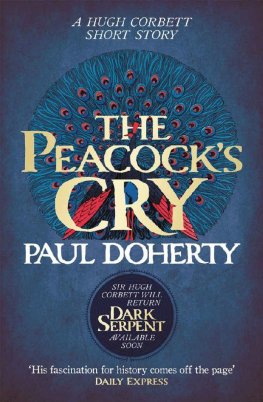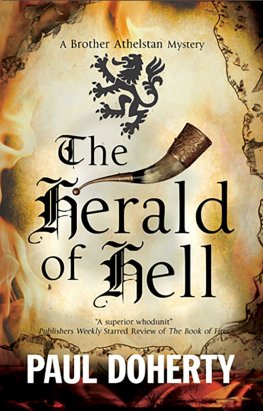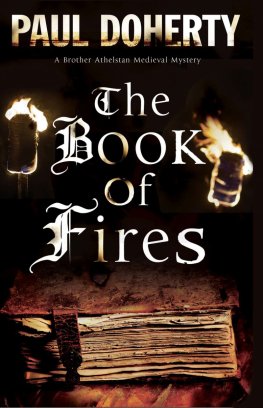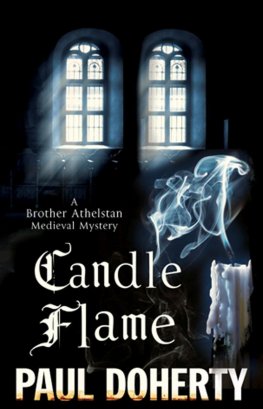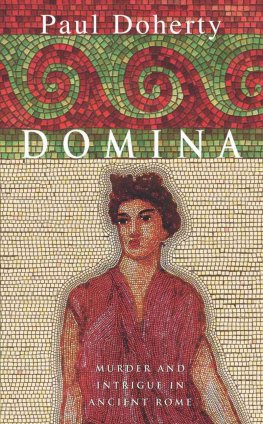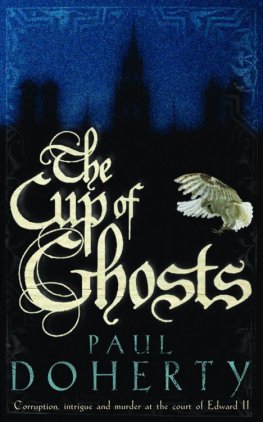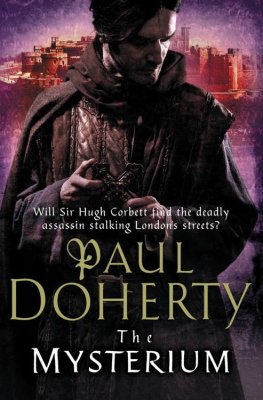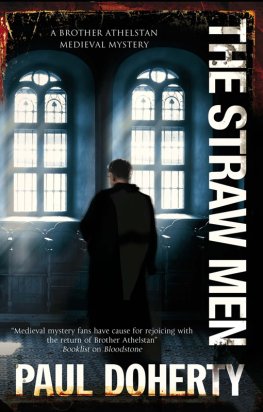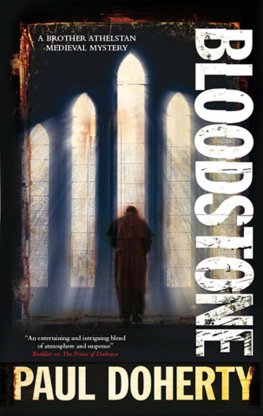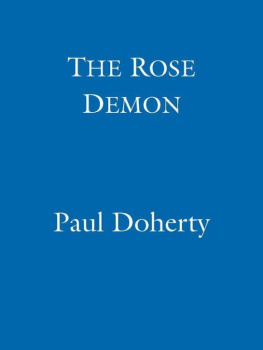Paul Doherty - The Treason of the Ghosts
Here you can read online Paul Doherty - The Treason of the Ghosts full text of the book (entire story) in english for free. Download pdf and epub, get meaning, cover and reviews about this ebook. year: 0101, genre: Detective and thriller. Description of the work, (preface) as well as reviews are available. Best literature library LitArk.com created for fans of good reading and offers a wide selection of genres:
Romance novel
Science fiction
Adventure
Detective
Science
History
Home and family
Prose
Art
Politics
Computer
Non-fiction
Religion
Business
Children
Humor
Choose a favorite category and find really read worthwhile books. Enjoy immersion in the world of imagination, feel the emotions of the characters or learn something new for yourself, make an fascinating discovery.
- Book:The Treason of the Ghosts
- Author:
- Genre:
- Year:0101
- Rating:3 / 5
- Favourites:Add to favourites
- Your mark:
- 60
- 1
- 2
- 3
- 4
- 5
The Treason of the Ghosts: summary, description and annotation
We offer to read an annotation, description, summary or preface (depends on what the author of the book "The Treason of the Ghosts" wrote himself). If you haven't found the necessary information about the book — write in the comments, we will try to find it.
The Treason of the Ghosts — read online for free the complete book (whole text) full work
Below is the text of the book, divided by pages. System saving the place of the last page read, allows you to conveniently read the book "The Treason of the Ghosts" online for free, without having to search again every time where you left off. Put a bookmark, and you can go to the page where you finished reading at any time.
Font size:
Interval:
Bookmark:
Paul Doherty
The Treason of the Ghosts
Chapter 1
Parson John Grimstone slowly climbed the steps into his pulpit and stared blearily down the parish church of St Edmunds. The grey dawn light filtered through the thick glass windows, even as the morning mist curled beneath the door, moving up the church like a cloud of cold incense. The nave, as usual for Sunday morning Mass, was packed with the burgesses, villagers and peasants of the royal borough of Melford in Suffolk. The wealthy ones sat in their benches and pews, specially bought, carved at the ends with individual decorations and motifs. The not-so-well off, the cottagers and peasants, sat behind them, whilst the real poor were herded at the back around the baptismal font. The rest lurked in the shadows of the transepts, sitting backs to the wall, their mud-caked boots stretched out before them.
Parson John breathed in sharply, trying to ignore the heavy fumes of the previous nights wine. Today, only a few Sundays away from the beginning of Advent, he would talk about death; that silent, sudden messenger which always made its presence felt, particularly in Melford with its history of bloody murder and consequent retribution of public trial and execution. Parson John plucked out the piece of parchment from inside his chasuble, placed it on the small lectern on the back of a carved eagle which soared out in front of the pulpit. He felt cold, the church was gloomy, and he recalled his own nightmares: how those buried beneath the grey flagstones might push the stones aside and stretch out skeletal, claw-like hands to drag him down amongst them a phantasm, but one which had plagued Parson Grimstone ever since he was a child. His mother had recounted how the dead slept beneath this church, waiting for the blast of Gabriels trumpet.
Grimstone cleared his throat. He must dispel this feeling of unease. A small, thickset man, with a drinkers red-cheeked face under a mop of snow-white hair, Parson Grimstone considered himself a good priest. He stared down at the people thronged before him. He had baptised their children, witnessed the exchange of vows at marriages and, at least years ago, gone out at all hours of the day and night to anoint their sick and dying.
His parishioners gazed back expectantly. This was one of the high points of the week. Parson John, sober, was a good preacher. He always stirred their hearts, making full use of the paintings on the walls or even the few stained-glass windows St Edmunds possessed. They were now in the autumn season, when everything was dying; perhaps their priest would remember that. He might talk about the horrors of Hell, the perils of Purgatory or, not so interesting, the happiness of Heaven.
Parson Grimstone glanced down at his curate, Robert Bellen, a young, thin-faced man, skin white as milk under a shock of black hair, slack mouth and rather vacant eyes. A good, hard-working curate, yet Grimstone wondered if Bellen was in full possession of his wits: he was a man with a horror of sexual sin. Perhaps thats why he was always tongue-tied in the presence of women. Father Robert, hands on his lap, was staring up at one of the gargoyles, a demon with a hideous face which surmounted one of the squat, rounded pillars which stretched down the church on either side. Father Robert had such an interest in devils and Hell! Parson Johns close friend, the former soldier Adam Burghesh, sat in his own special chair to the left of the pulpit. Hed quietly murmured how the young curate must have visited Hell, he knew so much about its horrors.
Burghesh moved in his seat, his long, grizzled face betraying puzzlement at the parish priests delay in beginning his sermon. Parson Grimstone smiled back and hid his own anxiety. He and Burghesh had grown up in Melford; half-brothers and close friends, theyd gone their separate ways. Burghesh, however, had made his fortune in the Kings wars and returned to Melford. Hed bought the old foresters house behind the church. Parson Grimstone had grown to rely on him, even more that he did Curate Robert.
The congregation began to cough and shuffle their feet. Parson Grimstone glanced along the front bench and noticed that Molkyn the miller was absent. His wife, Ursula, was there and the millers strange, blonde-haired, pale-faced daughter, Margaret. So, where was Molkyn? After all, on a Sunday, the mill was closed, no corn was ground, no flour sacked. Molkyn should be here, especially to hear this sermon. The parish priest raised his head.
Death! he thundered.
The congregation hugged themselves: this would be an exciting sermon.
Death! Parson Grimstone continued. Is like a bell whose function is to waken Christian people to pray. But lazy folk, after hearing the first chimes, wait for the second: often, they are so heavy with sleep, they do not hear it.
He glanced quickly at Molkyns wife.
Bells have different songs. He smiled down at Simon the bell-ringer. The song of this death bell is: Remember thy last end and thou shalt never sin.
Parson Grimstone pulled back the maniple on his left wrist, warming to his theme.
Death is like a summoner.
He paused as his congregation nodded and muttered to themselves. They all hated the summoner, that dreadful official of the archdeacons court, who came sniffing out sin and scandal. When he found it, be it a married woman playing the naughty with her lover, he issued a summons for the offending parties to appear at the archdeacons court.
Ah yes, Parson Grimstone continued. Death is like a summoner and carries a rod, as a sign of his office, more sharp, more cruel than the finest arrow. Death is also like a knight on horseback. He carries a huge shield, cleverly quartered. In its first quarter, a grinning ape, which stands for a mans executors who laugh at him and spend his goods. In the second quarter, a raging lion because death devours all it catches. In the third quarter, a scribe, indicating how all our deeds will be written down and recited before Gods tribunal. And in the fourth quarter. .
The door to the church was flung open. Parson Grimstone lowered his hands. The congregation craned their necks. Peterkin, the village fool, a man of little brain and even less wit, came lumbering up the nave. His shaggy, matted hair almost hid his wild eyes, his hose and battered boots were caked in mud.
Parson Grimstone came slowly down from the pulpit. Peterkin was one of Gods little ones. He depended on the charity of the parish and slept in barns, or at Old Mother Craufords, eating and drinking whatever was doled out to him. Parson Grimstone could see he was agitated. In fact, Peterkin had been crying, the tears creating rivulets of dirt down the poor fools face. The man bared his lips, blinked but the words never came out. The congregation were now agitated at their Sunday morning routine being so abruptly disturbed.
Hush now! Parson Grimstone ordered. Peterkin, whatever is the matter? This is Gods house. We are having Mass. You know that. Are you hungry? Are you thirsty? Or have you had one of your nightmares?
Peterkin wasnt listening. He was staring to his left and pointed to a painting in the transept. He was shaking and the inner leg of his hose was stained with urine. Parson Grimstone grasped Peterkins hand.
What is it? he demanded. Show me!
Like a child Peterkin led him across into the transept, the peasants and the cottagers making way. Peterkin pointed to a painting on the wall, showing the beheading of John the Baptist. The saints head was being placed on a platter by a wicked-looking Salome, to be taken to her vengeful mother.
Have you dreamt of that? Parson Grimstone asked, curbing his own impatience.
Peterkin shook his head. Molkyn! the grating voice replied.
Molkyn the miller?
Molkyn the miller, Peterkin repeated like a schoolboy. His head is all afloat!
Font size:
Interval:
Bookmark:
Similar books «The Treason of the Ghosts»
Look at similar books to The Treason of the Ghosts. We have selected literature similar in name and meaning in the hope of providing readers with more options to find new, interesting, not yet read works.
Discussion, reviews of the book The Treason of the Ghosts and just readers' own opinions. Leave your comments, write what you think about the work, its meaning or the main characters. Specify what exactly you liked and what you didn't like, and why you think so.


